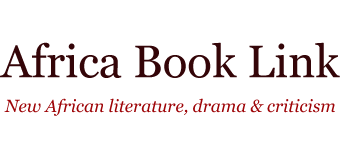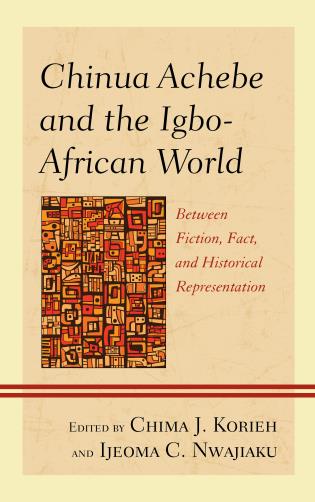Chinua Achebe and the Igbo-African World: Between Fiction, Fact and Historical Representation (Lexington Books, 2022), Chima J. Korieh and Ijeoma C. Nwajiaku (Eds.) | A Review by James J. Davis
During the 1991-1992 academic year, the Division of the Humanities of the College of Arts and Sciences at Howard University, with grant-funding from the National Endowment of the Humanities, restructured its two-semester core course entitled “Introduction to Humanities I and II”. The overall goal was to revise and expand the course content to include in the Humanities curriculum non-western literary historiography and cultural trajectories. Howard, like some other North American universities, quickly decided to include Chinua Achebe’s Things Fall Apart as the exemplary novel to represent the wide expanse of African literatures written in English. Project administrators purchased a copy of Lindfors’ Approaches to Teaching Achebe’s Things Fall Apart (Modern Language Association, 1991) for the faculty who would teach a section of the Humanities course. I was one of them. While there is no explicit reference to that work in the volume reviewed here, this reviewer believes that, in many ways, it is a comprehensive sequel to that publication and to the proliferation of other published scholarship heretofore on Achebe’s work.
After a quite engaging introduction by editors Korieh and Nwajiaku, the volume is divided into three parts. Part I “Chinua Achebe and Igbo-African Realities” includes 6 chapters (essays); Part II “Chinua Achebe and the Politics of Representation” includes 4 chapters; and Part III “Achebe, History, and the National Question” comprises 5. The editors offer the following rationale for the division: “The rationale behind this division is that, although some aspects of the Igbo experience can be addressed in their relationship to African and Nigerian culture, unique contextual circumstances warrant such division” (p. 4). The 15 essays are authored by scholars representing a variety of fields in the humanities, social sciences, theology, and communications. This gives way to different hermeneutical approaches and to a variety of sometimes conflicting interpretations of Achebe’s perception, presentation, and representation of historical facts, hence the subtitle of the volume: Between Fiction, Fact and Historical Representation.
By all accounts, this volume is indeed a welcome and timely addition to studies on Achebe’s literary works and persona because it takes us from chapter to chapter to a deeper understanding and fresh and new-fangled analyses of his work. Achebe’s efforts to unveil artistically the social, political, religious, male-female relations and the general psychological environment of the Igbo people are lauded, but they are examined critically and comprehensively to offer varying ways of reading and appreciating his artistry. In general, this volume makes a gargantuan contribution to African Studies, Igbo Studies, and cross-cultural literacy. The novice student as well as the seasoned scholar of African Literatures and Cultures will gain invaluable insights from reading the thought-provoking introduction and the 15 elucidating chapters followed by an excellent index of names, topics and themes.
James J. Davis (Howard University)



